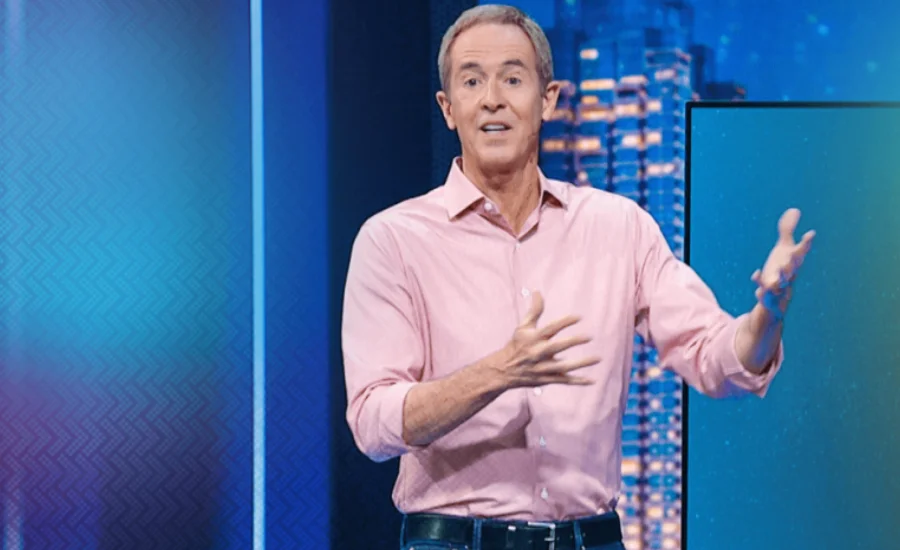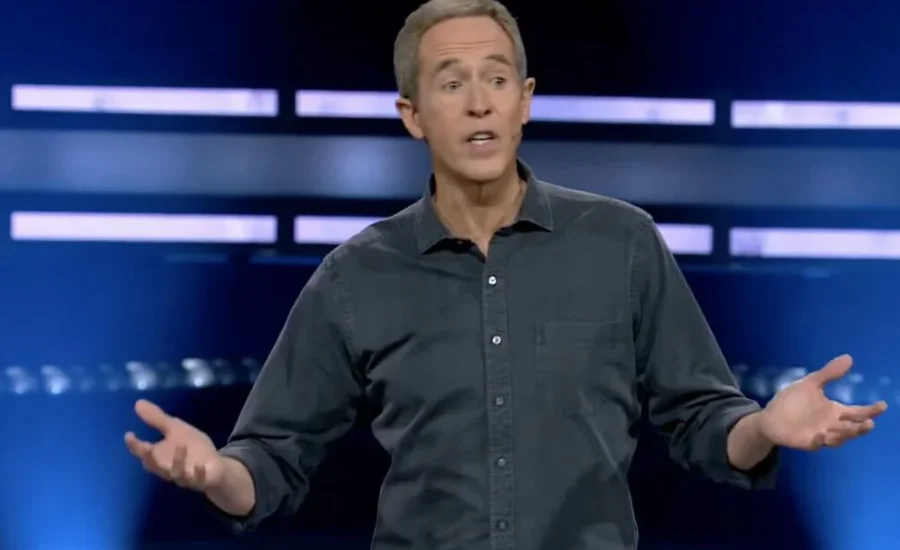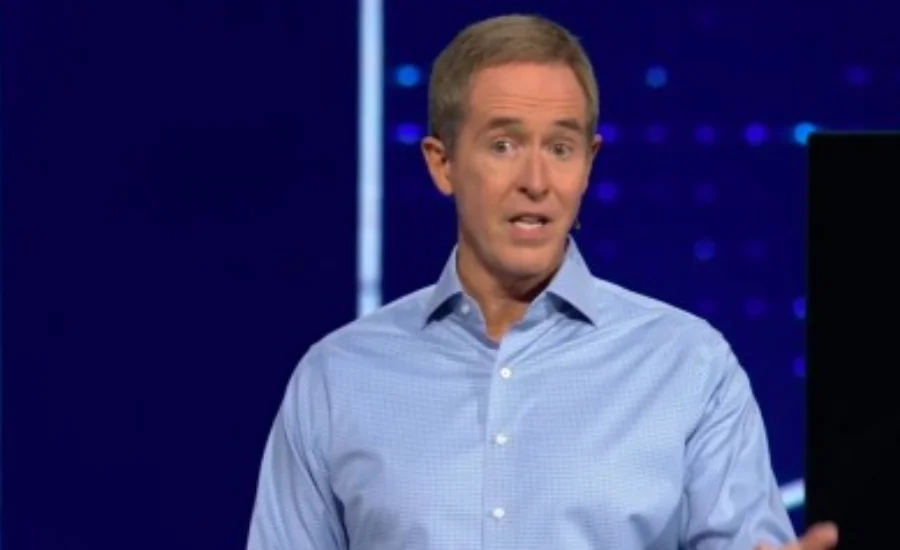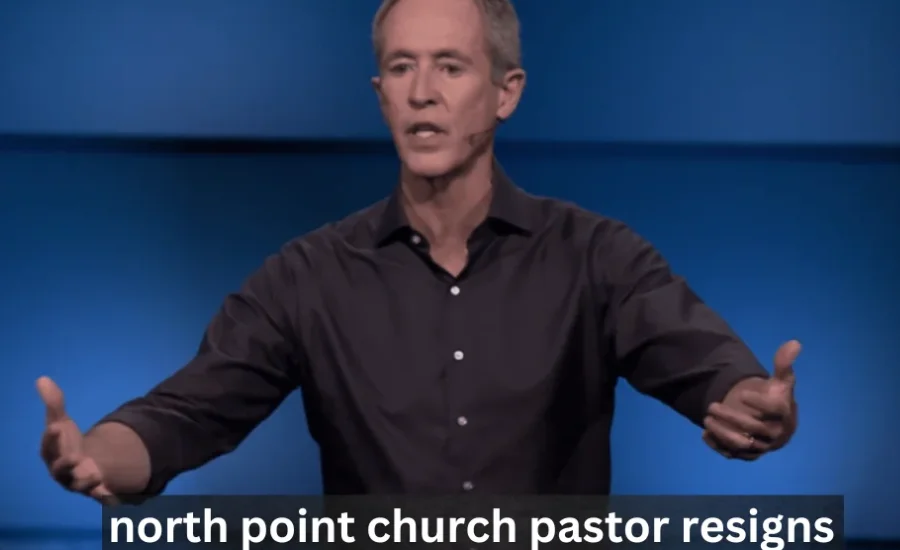The news that the North Point Church pastor resigns has sent shockwaves through the congregation and the surrounding community. As one of the most influential churches in the area, this event raises critical questions about its implications.
What factors contributed to this major decision? What will be the consequences for the church community moving forward?
In a time when faith communities are facing their own unique challenges, the resignation of the North Point Church pastor stands out as a pivotal moment. Join us as we investigate the circumstances leading up to this unexpected development and explore its potential impact on the church and its members in the days to come.
Exploring the Impact of the North point church pastor resigns
In this article, we will take an in-depth look at the recent developments surrounding the North Point Church pastor resigns. We will examine the factors that influenced Stanley’s choice to step down, gauge the reactions from the community, and discuss potential future implications for the church.
Whether you are a member of North Point Church, belong to another faith community, or simply have a curiosity about the unfolding situation, this story offers valuable insights for everyone involved.
Let’s begin by tracing the events leading to this significant change at North Point Community Church and explore its broader impact on the congregation.
The Significance of Andy Stanley’s Role in the Christian Community
To grasp the impact of Andy Stanley’s resignation, it’s essential to understand his background and contributions to modern Christianity.
Born in 1958, Andy Stanley is the son of Charles Stanley, a prominent pastor in his own right. He pursued higher education at Georgia State University before attending Dallas Theological Seminary, where he developed a solid foundation in theology.
Stanley launched his career at First Baptist Church of Atlanta, working alongside his father before founding North Point Community Church in Alpharetta, Georgia, in 1995. Under his leadership, North Point transformed into a megachurch with multiple locations, attracting thousands of congregants.
What sets Stanley apart is his innovative teaching style. He is celebrated for his ability to present complex spiritual concepts in relatable terms, making Christianity accessible and relevant to contemporary audiences. His approach has resonated particularly with younger generations seeking a faith that aligns with modern life.
Additionally, Stanley is an accomplished author, having penned numerous books on faith, leadership, and personal development. His ideas have significantly influenced how many churches operate today, with North Point often serving as a model for contemporary worship practices.
However, being a prominent figure in the Christian community comes with its challenges. The spotlight can sometimes lead to scrutiny and controversy. Recently, a sermon delivered by Stanley sparked widespread discussion, eliciting mixed reactions from both supporters and critics.
Understanding Andy Stanley’s journey sheds light on why his resignation is a pivotal moment for North Point Church and the broader Christian community.
Emotional Farewell: North Point Church’s Transition
The announcement of the senior pastor’s resignation at North Point Church struck a deep chord within the congregation. During a poignant service last Sunday, he stood before the community, visibly emotional yet composed, as he shared his decision.
“It’s time for a new chapter,” he expressed, signaling a shift that would reverberate throughout the church and its members. His words carried significant weight, resonating deeply with those present.
For many congregants, the moment was overwhelming; tears flowed freely while others remained in stunned silence, grappling with the unexpected news. This resignation has left a palpable sense of uncertainty regarding the future of their cherished church.
In a time when changes in church leadership often occur with little fanfare, this moment marked a profound turning point for North Point Church. As the congregation begins to process this transition, important questions arise: What does this mean for the church’s future? How will we collectively navigate this new path?
The Sermon That Stirred Controversy
Let’s delve into the sermon that sparked significant discussion within the Christian community. On April 15, Andy Stanley delivered a message that resonated with many and ignited a heated conversation.
Context of the Sermon: Part of a series titled “When Gracie Met Truthy,” Stanley aimed to explore the delicate balance between grace—demonstrating kindness and forgiveness—and truth—adhering to biblical principles.
Narrative Element: During his sermon, Stanley shared a poignant story about a married couple facing a crisis when the wife discovers her husband’s involvement with another man. This narrative was intended to illustrate the complexities of embodying both grace and truth in challenging circumstances.
The Controversy: The sermon quickly became contentious as it addressed a particularly sensitive topic within Christianity: the approach to LGBTQ+ issues. Given the varying perspectives among Christians on this matter, the sermon stirred debate and disagreement.
The points of contention surrounding Stanley’s message included:
- Use of a Same-Sex Relationship: Many critics felt that his inclusion of a story involving a gay relationship could be seen as normalizing such unions.
- Focus on Adultery: While Stanley emphasized the aspects of infidelity, some argued that he overlooked the implications of homosexuality altogether.
- Striving for Balance: His attempt to present a balanced perspective led some to believe he lacked clarity regarding biblical teachings on the subject.
Stanley’s objective was to address how to love individuals while remaining true to Christian beliefs. However, this endeavor proved challenging, as many perceived it as navigating a sensitive terrain.
Responses to the sermon were mixed. Some applauded Stanley for his courage in addressing a difficult issue, viewing it as a necessary conversation. Conversely, others believed he strayed too far from traditional Christian doctrines.
The context surrounding the sermon was also significant, occurring at a time when many churches grappled with how to approach LGBTQ+ matters. While some congregations have embraced more progressive views, others have remained steadfast in their traditional teachings. Under Stanley’s guidance, North Point had generally been recognized as more progressive compared to other large churches.
Although the sermon might have initially seemed like a singular event, it quickly became a catalyst for broader discussions. Soon, conversations about Andy Stanley and his controversial remarks extended far beyond the walls of North Point Church, igniting a much larger dialogue within the faith community.
Unpacking the Reasons Behind the North point church pastor resigns

The resignation of the North Point Church pastor has prompted numerous questions within the community. Sources indicate that personal challenges significantly influenced his decision. The demanding nature of balancing pastoral leadership with family responsibilities can take a considerable toll.
Moreover, insiders suggest that internal disagreements regarding the church’s direction may have contributed to his departure. Conflicting visions for the church’s future likely created tensions that became increasingly difficult to navigate.
Mental health considerations also play a critical role in contemporary pastoral resignations. The pressures and expectations faced by church leaders today can lead to burnout, highlighting the importance of prioritizing self-care.
Congregation members have voiced their shock and sorrow in response to these developments. It is evident that a combination of factors intertwined, culminating in a profound decision that impacts both the pastor and the community he dedicated himself to serving.
Reactions to Andy Stanley’s Sermon: A Community Divided
Following Andy Stanley’s sermon, a wave of reactions emerged from various groups within the Christian community.
Responses from Church Members: Reactions among congregants were mixed. Some expressed strong support for Stanley, appreciating his compassionate approach. Others felt confused or upset, concerned that his message might signal a shift in the church’s teachings. A significant number found themselves uncertain about how to interpret his remarks.
Christian Leaders Weigh In: Prominent figures in the broader Christian community also chimed in. R. Albert Mohler Jr., a leading voice in the Southern Baptist Convention, published a blog post criticizing Stanley for his sermon. Conversely, some pastors defended Stanley, arguing that his intent was to demonstrate love and inclusivity. However, others contended that he had strayed too far from biblical doctrine.
Wider Christian Community: The conversation extended beyond North Point Church, sparking intense discussions in online forums and church meetings. Some applauded Stanley for confronting a challenging topic, while others expressed concern that he was potentially leading people away from traditional Christian values.
The controversy centered on several key issues: the balance of love and truth, clarity regarding biblical teachings, and the implications of accepting diverse perspectives on relationships.
Mohler’s critique was particularly significant, as he is a prominent figure within the Southern Baptist movement. His comments resonated widely, with many agreeing that Stanley focused too heavily on the aspect of infidelity while neglecting the implications of the same-sex relationship in his narrative.
This debate raised broader questions for the community:
- Is Andy Stanley altering foundational Christian teachings?
- How should churches engage in discussions about LGBTQ+ issues?
- Is it possible to extend love to all individuals while adhering to traditional Christian beliefs?
The intensity of these discussions put considerable pressure on both Andy Stanley and North Point Church. Navigating such heated debates over his sermon contributed to the factors influencing Stanley’s decision to resign as pastor.
Community Reacts to North point church pastor resigns
The resignation of the North point church pastor resigns sent shockwaves through the congregation, leaving many members in disbelief as they struggled to come to terms with the unexpected news.
Social media became a platform for congregants to express their mixed emotions. Posts ranged from heartfelt tributes to inquiries about the reasons behind this significant leadership change, reflecting both sadness and confusion within the community.
Local residents, many of whom had attended North Point services for years, shared their concerns about the potential impact on outreach programs that provide essential support to those in need. The community’s apprehension highlighted the integral role the church plays in local service efforts.
Amid the surprise, there was also a notable outpouring of support for both the departing pastor and the church leadership. Many community members organized prayer gatherings, coming together to seek guidance and comfort during this unsettling time. This collective response underscored the strong bonds within both the church and the surrounding neighborhoods, reinforcing a sense of unity amid the uncertainty.
Andy Stanley Announces North point church pastor resigns

On May 1, a significant announcement rocked the North Point Community Church as Andy Stanley revealed his decision to step down as pastor.
The Setting: Stanley made the surprising announcement during a Sunday service, catching the congregation off guard.
Reasons for Resignation: While he cited personal reasons for his departure, he did not elaborate further, expressing a desire to explore new opportunities.
The news hit the church community hard, leaving many members in shock. The reactions were immediate and emotional, with feelings of sadness and confusion prevalent among congregants. Many struggled to understand the timing of his resignation and the implications it would have for the church moving forward.
Why was this resignation such a pivotal moment? Andy Stanley was not just any pastor; he had played a fundamental role in founding North Point and had led the church for nearly 30 years. Under his guidance, the church transformed into a significant and influential congregation. His departure felt akin to the captain of a ship announcing he would no longer steer the vessel—an unsettling prospect for the church community.
Questions quickly emerged in the wake of the announcement:
- Why did he choose this moment to resign?
- Could this decision be linked to his recent controversial sermon?
- What does the future hold for the church?
- Who will take over the leadership role?
Stanley’s reluctance to provide specific details about his reasons for leaving left many wondering if there was more beneath the surface. The close timing of his resignation following a contentious sermon led some to speculate about a potential connection, although Stanley did not address this directly.
For the North Point community, this marked a profound shift. As the face and voice of the church for decades, Stanley’s absence would undoubtedly change the landscape of their worship and fellowship. His resignation signified more than just one individual leaving a position; it represented a community grappling with uncertainty and the need to adapt to a new reality. As events unfold, it is clear that deeper complexities lie beneath the surface of this unexpected change.
A New Chapter for North Point Church
The resignation of the North Point Church pastor signifies a crucial turning point for the congregation, prompting many to reflect on the future of their leadership and overall direction.
As the church anticipates new leadership, members may experience a mix of anxiety and optimism. North Point is known for its vibrant community, built on strong connections among its members. While change can be daunting, it can also present opportunities for growth when approached thoughtfully.
This transition may pave the way for innovative ideas and initiatives, as new leaders often infuse fresh energy into existing programs and outreach efforts. The introduction of different perspectives can invigorate the church’s mission and enhance its impact within the community.
Yet, uncertainty also casts a shadow as congregants contemplate their future together. Rebuilding trust will be vital as they navigate this transition, striving for stability in the midst of change.
Moving forward, it will be essential for North Point Church to engage actively with its community. Maintaining open lines of communication can alleviate concerns and foster unity during this transformative period, helping to ensure a smooth transition for all involved.
Unveiling Internal Challenges at North Point Church
In the wake of Andy Stanley’s resignation, new insights emerged about the underlying issues at North Point Church that had remained hidden from the public eye. It became clear that the church had been grappling with several significant challenges.
Divergent Visions for the Church’s Future: Disagreements regarding the direction of the church were at the forefront of the tensions. While some leaders preferred to maintain traditional practices, others, including Stanley, advocated for a more contemporary approach. This clash of ideologies led to disputes over the church’s operational strategies.
Social and Political Divides
The church also faced contention over how to address critical issues such as politics, social justice, and LGBTQ+ rights. These discussions were often heated, reflecting broader societal debates that can be polarizing within faith communities.
Financial Disputes: Concerns regarding financial management surfaced as well. Disagreements over budgeting and spending priorities led to conflicts surrounding major financial decisions, adding another layer of complexity to the church’s internal dynamics.
Leadership Dynamics: Stanley’s leadership style was another focal point of contention. Some congregants felt he wielded too much power, while others called for a more collaborative approach to decision-making. This division highlighted a desire among some members for greater involvement in shaping the church’s direction.
Challenges Facing Churches Nationwide
Churches across the nation have been confronting a range of challenges, often leading to pastoral resignations triggered by diverse issues, from personal struggles to leadership conflicts.
For instance, a well-known church in California experienced a significant upheaval when its pastor resigned following allegations of misconduct. The congregation was left reeling, grappling with uncertainty about the future and the church’s direction.
Similarly, a Texas church witnessed its lead pastor step down due to severe burnout after years of dedicated service. This resignation ignited important discussions about mental health and well-being within ministry roles, shedding light on the pressures faced by church leaders.
These examples illustrate that North Point Church is part of a broader trend, as many congregations navigate similar transitions. Each resignation not only signifies a loss but also serves as an opportunity for reflection and growth within the community.
As congregations face these changes, they often take the time to reevaluate their missions and reinforce the connections among their members. This period of adjustment can ultimately lead to a deeper sense of community and shared purpose.
The Impact of Andy Stanley’s Resignation on North Point Community Church

The resignation of Andy Stanley has profoundly affected North Point Community Church, leading to significant changes within the congregation and its activities.
Emotional Reactions and Attendance
The emotional fallout from Stanley’s departure has been palpable among church members. Many experienced shock and sadness, with feelings of uncertainty about the future of their community. Some congregants have found themselves feeling lost without their long-time leader, while others have rallied to show support, leading to varied attendance levels. While a number of members chose to step back from church services, others increased their participation, driven by curiosity or a desire to maintain their connection to the church.
Changes in Church Programs and Leadership
In response to the transition, several church programs were paused, while others adapted to the evolving situation. New initiatives were introduced to help the congregation cope with the changes. The church appointed a temporary leader as it began the search for a new permanent pastor, which has resulted in other church leaders taking on additional responsibilities.
Navigating Unity Amidst Discontent
The resignation also brought underlying disagreements to the forefront, revealing differing opinions within the congregation. While some groups formed around these varied perspectives, the church leadership made concerted efforts to foster unity and reconciliation among members.
Building Trust and Moving Forward
One of the church’s most pressing challenges has been maintaining cohesion and trust within the community. With a major leader stepping down, there was a risk of members feeling disillusioned or confused. In response, church leaders have prioritized transparency and communication to rebuild trust and reassure members that their church remains a supportive place.
Despite the challenges, there have been positive developments as well. New leaders have emerged, and members have come together to provide mutual support. Conversations about the church’s future have become more open and inclusive, reflecting a collective desire for growth and improvement.
This situation has highlighted that North Point Community Church is not solely defined by Andy Stanley; it is a vibrant community of individuals committed to their faith and to each other. As the church moves forward, it faces the important task of honoring its past while embracing new possibilities.
In the next section, we will explore the broader implications of this transition for Christianity as a whole, extending beyond the walls of North Point Church.
North Point Church: Navigating Change and Building Trust
The recent resignation of the pastor at North Point Church has sparked a period of deep reflection within the congregation. In response, church leadership is prioritizing transparency and open communication to restore trust among members. To facilitate this, regular meetings are being organized to address concerns and gather valuable feedback.
To further support this transition, a task force has been formed to reevaluate the church’s mission and vision. This initiative includes collaboration with community leaders, who will offer insights to help guide the church through this transformative phase.
Additionally, North Point Church is planning workshops designed to promote spiritual growth, focusing on resilience and coping strategies during times of change. These sessions aim to equip members with tools to navigate their spiritual journeys amid uncertainty.
Moreover, the church is taking a closer look at its governance structure to ensure accountability across all levels. By embracing these lessons, North Point Church seeks not only to heal but also to emerge from this period of change stronger than before. This commitment to adaptation underscores their dedication to meeting the needs of both the congregation and the wider community.
The Broader Implications of Andy Stanley’s Resignation
The narrative surrounding Andy Stanley and North Point Church reflects broader challenges faced by many Christian communities today. This situation sheds light on several critical issues affecting the church as a whole.
Balancing Tradition and Modernity
Many congregations are grappling with the need to uphold traditional Christian beliefs while also engaging with contemporary issues. This tension can lead to disagreements and even divisions within the church, as members seek to reconcile differing viewpoints.
Addressing Social Concerns
Churches are increasingly confronted with complex questions surrounding topics such as LGBTQ+ rights, political engagement, and social justice. Varied responses to these matters can create rifts among congregants, making it essential for church leaders to navigate these discussions thoughtfully.
Rethinking Leadership Structures
A key question emerging from this scenario is the concentration of power within a single pastor. Many are beginning to advocate for shared leadership models that distribute responsibilities more evenly, reducing the reliance on one individual and fostering a more collaborative environment.
Prioritizing Transparency and Trust
There is a growing demand for openness within church communities. Members are calling for clearer communication regarding decisions and challenges faced by their congregations. This shift towards transparency is vital for rebuilding trust in leadership.
Embracing Change
Churches must remain adaptable in an ever-evolving world. However, embracing change can be daunting for many, as it often requires re-evaluating long-held beliefs and practices.
These issues extend far beyond the walls of North Point Church; they resonate throughout Christian communities nationwide. The story of Andy Stanley has amplified these challenges, prompting important conversations about the future of the church.
Opportunities for Growth
Despite the complexities, there are potential silver linings. Churches may become more open to discussing difficult topics, explore innovative leadership structures, and find effective ways to align traditional beliefs with modern realities.
However, the risks are also significant. Some congregants may choose to leave their churches, divisions could deepen, and certain congregations might struggle to define their core values amidst the chaos.
For Christianity as a whole, this period represents a pivotal moment filled with pressing questions and necessary transformations. The situation at North Point serves as a wake-up call, encouraging church leaders to reflect on their leadership styles and the essential values their communities embody.
In the following section, we will explore how North Point Church is moving forward and what valuable lessons other congregations can draw from this experience.
The Impact of COVID-19 on Andy Stanley and North Point Church
The COVID-19 pandemic brought unprecedented challenges to Andy Stanley and North Point Church, mirroring the struggles faced by congregations nationwide. In response to health concerns, the church was compelled to suspend in-person services for over a year, which forced a complete overhaul of their ministry operations to accommodate virtual engagement.
This transition placed significant strain on the staff, intensifying pressures at a time when maintaining community connections became increasingly difficult. While online services offered a temporary solution, they attracted fewer attendees compared to in-person gatherings, leading to a notable decline in fundraising efforts that are vital for church operations.
By late 2021, Stanley found himself confiding in close friends about his struggles. He expressed uncertainty regarding his ability to fully lead the church’s recovery in the aftermath of the pandemic. The isolation and disruption caused by COVID-19 seemed to culminate in a realization for him: the time had come for fresh, visionary leadership to guide the church into a new era.
This period of reflection and difficulty underscored the challenges that many church leaders faced as they navigated a world transformed by the pandemic.
Charting a New Course for North Point Community Church

In the wake of the resignation of Andy Stanley, North Point Community Church has embarked on a significant journey of reflection and renewal. This pivotal moment goes beyond simply seeking a new pastor; it involves reimagining the identity and future direction of the church. Here’s how they are approaching this transformative period:
New Leadership Search: The church has initiated a dedicated team to identify potential candidates for the pastoral role. They are carefully considering the qualities and skills they desire in a new leader, with discussions around possibly adopting a shared leadership model to diversify perspectives.
Community Healing: To mend the emotional wounds caused by recent events, North Point is organizing special gatherings that encourage open dialogue about the changes. They are also providing counseling services for those who need support, fostering an environment where differing opinions can coexist.
Policy Review: The church leadership is actively reviewing their decision-making processes to enhance transparency. They are committed to updating governance structures to prevent similar issues in the future, promoting a culture of openness regarding church operations.
Refocusing Core Values: In this period of transition, the church is reaffirming its foundational values and reassessing which programs and initiatives align with its mission. They are also discussing strategies for addressing complex social issues while maintaining unity within the congregation.
Rebuilding Trust: Transparency is key in regaining the trust of the congregation. North Point is focused on honest communication about past events and is inviting congregants to have a more significant role in future decisions, demonstrating their commitment to positive change.
Learning from the Experience: The church is taking the opportunity to reflect on the lessons learned from recent challenges, examining what went wrong and how to improve moving forward. They are reaching out to other churches for insights, aiming to strengthen their community.
Engaging with the Wider Community: North Point is committed to keeping both its members and the broader community informed about developments. By sharing their journey and progress, they hope to build a positive narrative around their efforts to move forward.
A New Era for Andy Stanley and North Point Community Church
After more than three decades of dedicated leadership, Andy Stanley has transitioned from his role as the senior pastor of North Point Community Church, leaving behind a remarkable legacy. Under his guidance, the church expanded from a single campus to nine locations throughout the metro Atlanta area, attracting a weekly attendance of over 30,000. Additionally, North Point has established numerous satellite campuses globally, solidifying its status as one of the most influential evangelical churches in the United States. Having achieved his vision of building God’s kingdom, Stanley feels confident entrusting its future to a new generation of leaders.
Stanley’s decision to resign comes after thoughtful contemplation about life beyond pastoral duties. He has shared his excitement about pursuing personal interests such as mentoring, writing, and public speaking, free from the responsibilities that come with managing a large church organization. Following his resignation, he plans to take an extended sabbatical, allowing him to rest, travel, and engage in hobbies alongside his wife. With a positive outlook, Stanley is eager to explore new avenues for making a meaningful impact in people’s lives through various ministry channels.
Also Read: Pomperaug 10 year reunion
Final Words
The resignation of the North Point Church pastor marks a significant turning point for the congregation and its community. After decades of influential leadership, this decision has left many church members grappling with a mix of emotions—shock, sadness, and uncertainty about the future. As the church navigates this transition, it is essential to prioritize open communication and rebuild trust among members. The leadership is actively seeking new guidance while reassessing the church’s mission and values. With a focus on fostering unity and addressing community concerns, North Point Church has an opportunity to emerge stronger than ever. This pivotal moment serves as a reminder that even large, successful churches face challenges. The North Point Church pastor resigns not just as a leadership change but as a call to reevaluate and adapt in a rapidly evolving spiritual landscape. The future holds promise, and the congregation is poised to embrace new possibilities for growth and connection.
Your journey doesn’t have to stop here—uncover more enlightening reads on our site Twinkle Crest




